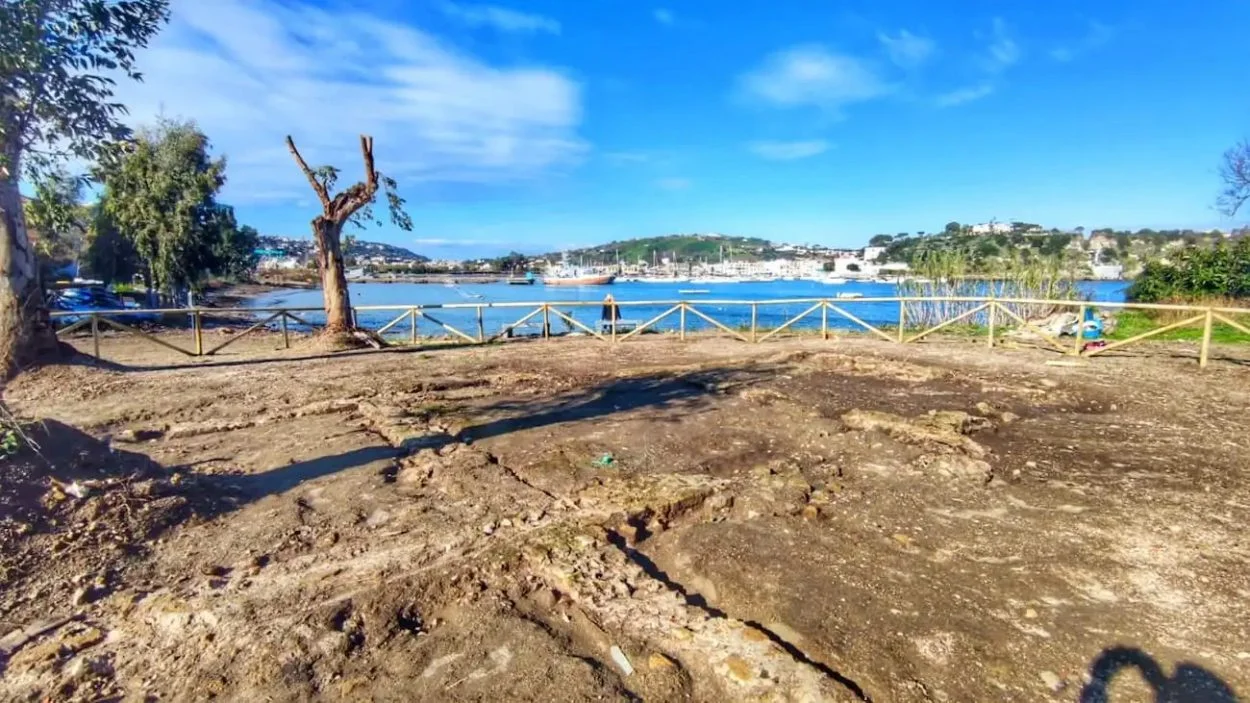Archaeologists have uncovered a Roman villa complex on the shoreline of Miseno in the northwestern end of the Bay of Naples.
During the Roman period, Miseno was a large port known as Misenum (named after Misenus, a companion of Hector and trumpeter to Aeneas), later serving as the primary port for the Classis Misenensis, the senior fleet of the imperial Roman navy.
It was from here that Pliny the Elder (the author of the encyclopedic Naturalis Historia) was the praefect in charge of the naval fleet at the time of the eruption of Mount Vesuvius in AD 79.
The volcano released a deadly cloud of super-heated tephra and gases to a height of 33 km (21 mi), ejecting molten rock, pumice, and hot ash at a rate of 1.5 million tons per second. The resulting pyroclastic surges and heavy ashfall enveloped Pompeii and Herculanium, with large parts of Stabiae buried in thick tephra and ash.
Pliny organised and led a rescue mission across the bay, yet tragically succumbed to asphyxiation resulting from the noxious gases emitted by the volcano.
Recent excavations at Miseno have uncovered a villa complex dated to the 1st century AD during the period of the eruption, which according to the archaeologists may have been the residence of Pliny the Elder, however, at this time this is merely conjecture.
The villa consists of 10 large rooms dated to different periods of construction, and has opus reticulatum walls – a form of Roman brickwork consisting of diamond-shaped bricks of tuff referred to as cubilia.
The complex extends from the shore without interruption to the beach, with parts now becoming partially submerged likely due to local volcanic bradyseismic activity that has raised or lowered the geology on the peninsula.
Header Image Credit : Soprintendenza Archeologia





